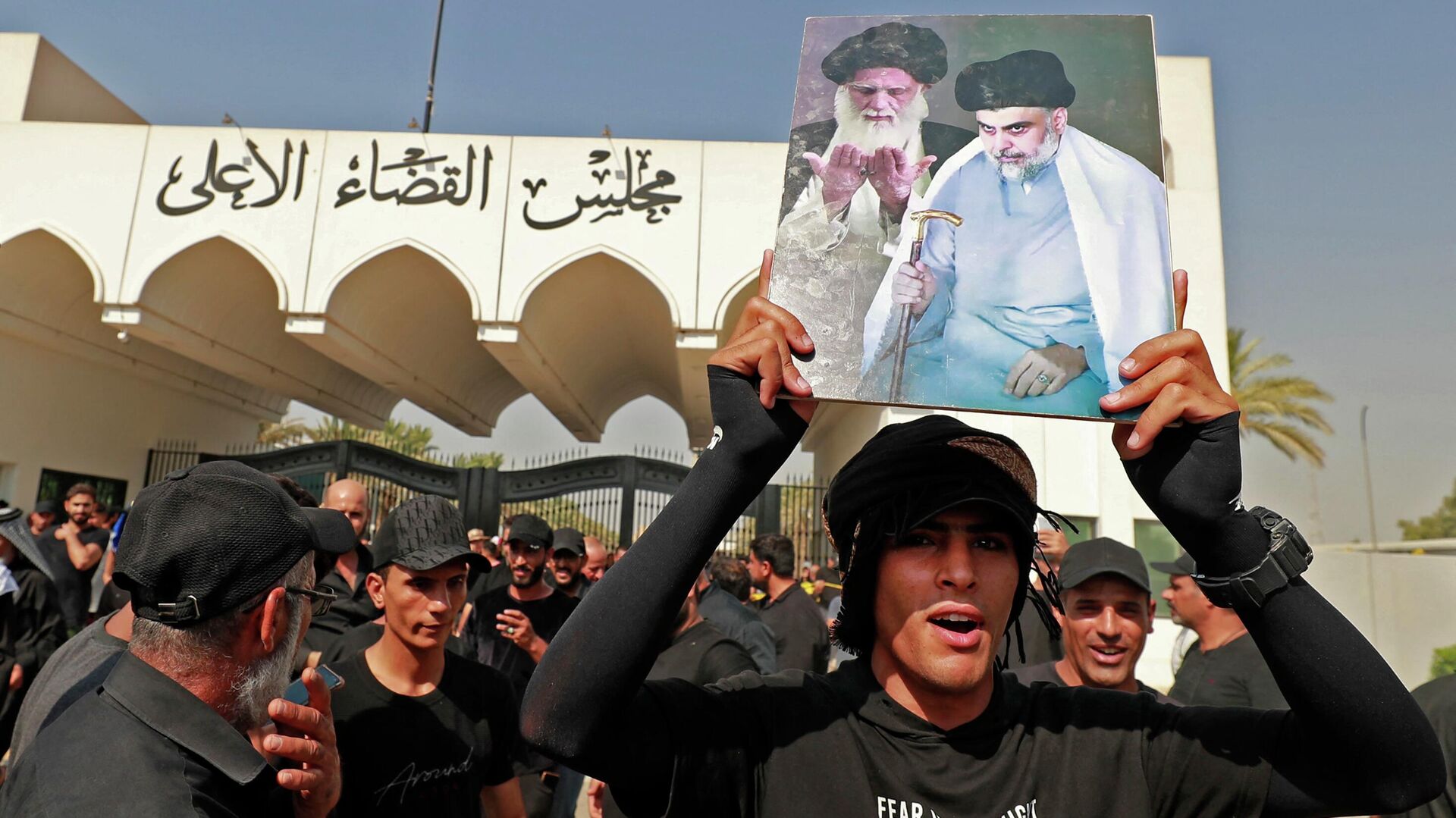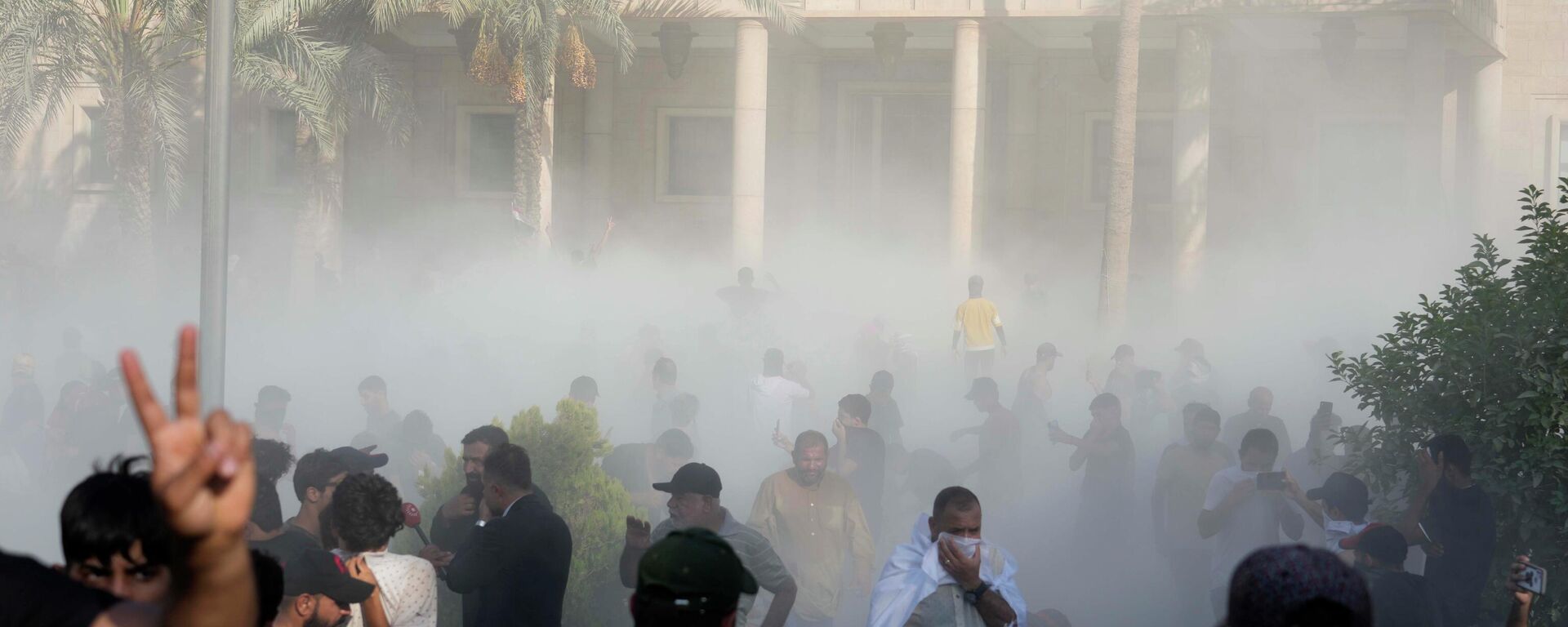Iraqi President Sees Snap Parliamentary Elections as Way Out of Crisis
18:20 GMT 30.08.2022 (Updated: 16:45 GMT 08.01.2023)

© AFP 2023 / AHMAD AL-RUBAYE
Subscribe
BAGHDAD (Sputnik) - Holding early parliamentary elections will be a way out of the political crisis in Iraq, President Barham Salih said in a televised address to the nation.
Clashes erupted in Baghdad and other provinces on Monday after Shia leader Muqtada al-Sadr announced his party's renunciation of political activity and the curtailment of the work of his party's offices due to the inability to resolve political differences with the government on calling early parliamentary elections and the inability to form a broad coalition in parliament after his faction won elections last fall.
According to the latest data from Iraqi doctors, the death toll during the clashes reached 30, more than 700 people were injured, including 110 security personnel.
"The holding of new snap elections (to the parliament) in accordance with the national understanding is a way out of the suffocating crisis in the country," Salih said.
The president added that Iraq needs major reforms to address weaknesses in the governance system, including establishing a dialogue between the federal government and the authorities of the autonomous Iraqi region of Kurdistan.
On Tuesday, the situation in Baghdad began to return to normal after a speech by al-Sadr, who called on his supporters to leave the government's "Green Zone" in the center of Baghdad and stop armed confrontation with security forces and Shiite militias that joined them.
Iraq has been facing a political deadlock since the parliamentary elections in October 2021. Al-Sadr's political bloc won the elections but reverted to the opposition in May and stepped down in June after several unsuccessful attempts to form a government.
Al-Sadr's supporters resumed protests in Baghdad in late July, breaking into the parliament building and refusing to leave it. The protests were triggered by the nomination of Mohammed Sudani, another representative of Shiite parties in the Iraqi parliament except for Sadr's bloc, for the post of prime minister. Sudani represents the Coordination Framework, an Iran-backed alliance of Shiite forces forming the largest bloc in the Iraqi legislature.
In August, al-Sadr called on authorities to dissolve parliament and schedule next general elections, however the Supreme Judicial Council of Iraq declined the request.
Al-Sadr's supporters resumed protests in Baghdad in late July, breaking into the parliament building and refusing to leave it. The protests were triggered by the nomination of Mohammed Sudani, another representative of Shiite parties in the Iraqi parliament except for Sadr's bloc, for the post of prime minister. Sudani represents the Coordination Framework, an Iran-backed alliance of Shiite forces forming the largest bloc in the Iraqi legislature.
In August, al-Sadr called on authorities to dissolve parliament and schedule next general elections, however the Supreme Judicial Council of Iraq declined the request.


